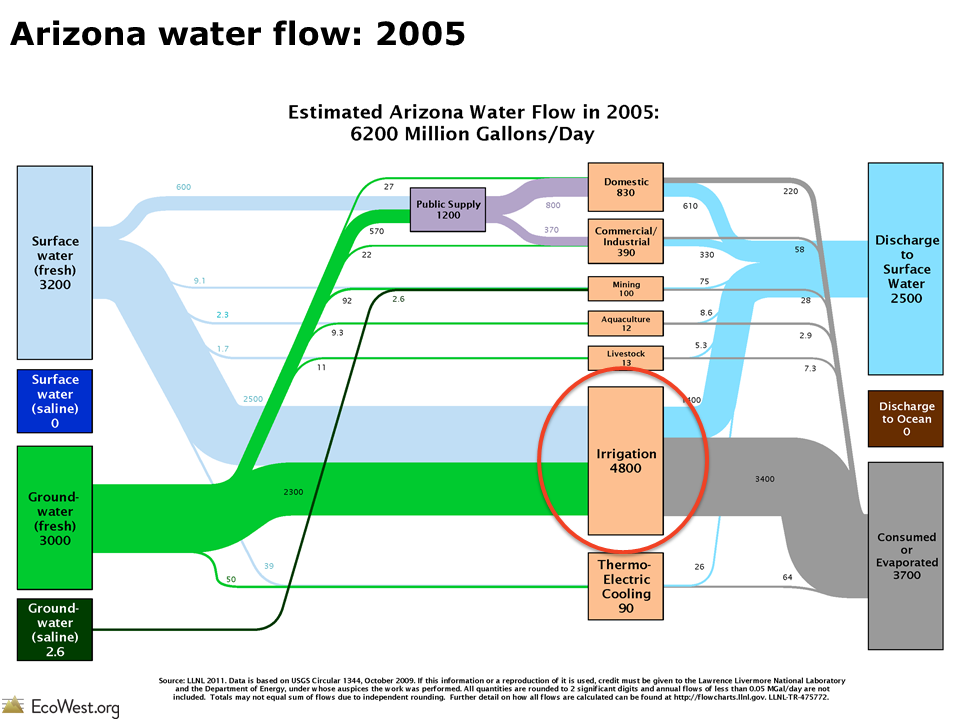Last, but by no means least in our consideration of resource recovery, is Water. It seems obvious to say that the most valuable resource we can recover from waste-water is most often the water itself. In arid regions like Israel, Cyprus, Nevada and Southern California, the pressure on water resources is so great that there is little choice but to reuse the "used water" (to borrow a phrase from Singapore). In other regions, water stress is not yet a concern but it's coming as populations increase and weather patterns shift.
The topic of water reuse is huge and well-established and I don't think I could do it justice in a blog such as this. Instead, I just want to highlight a few interesting articles. The August edition of the IWA Journal, Water 21 has a nice article on global water reuse that I highly recommend. Unfortunately you have to be an IWA member to access the article, or you can buy the book on which the article was based!
The Energy-Water Nexus is a topic that's courts a lot of attention, and rightly so. Energy is a key element that drives economic development and the modern amenities the western world has come to rely on. Energy production requires a lot of water and water production and wastewater treatment require energy which links the two quite strongly. I should note that the balance in this linkage is pretty skewed toward Energy production needing a huge volume of water whereas water production and wastewater treatment requires a small piece of the energy pie! There are many, many article discussing this topic. Here's one for starters.
Extending this topic a little further, we need to think about the other activity that uses a huge quantity of water, and that's agriculture. I'm not a water resources guy (poop engineer remember!) so it was really enlightening to see the water source and use diagrams for the US. The amount we use and produce for domestic use is tiny in comparison to irrigation and energy production. Ecowest has an informative presentation that describes some figures produced by the Lawrence Livermore National, in their case focusing on the western states of the US.
So, where does this leave us in thinking about water reclamation and resource recovery? Certainly it's a topic that is region specific. If you have an abundance of water and sources of a high quality, then it makes most sense to treat our wastewater and return it to the natural environment to help preserve our rivers and waterways as we've traditionally done it treatment plants for years. But in regions where there's a shortage of water we need to see our wastewater streams as valuable sources for reclamation and reuse. I like to think of it in a wider context of reduce-reuse-recycle. First of all, let's use whatever measures we can to conserve and not waste the water - in our homes, industries, agriculture and energy prodcution. Then let's look for ways of reusing water within these different arenas. Then finally we look at treating and recycling the used water at our wastewater treatment plants.
As I said, this is a huge topic and way beyond the scope of a little blog like this. But hopefully I've helped you to stop and think about the part that wastewater treatment facilities can play in our regional water cycles and to see the value of our most precious resource of all: water.






